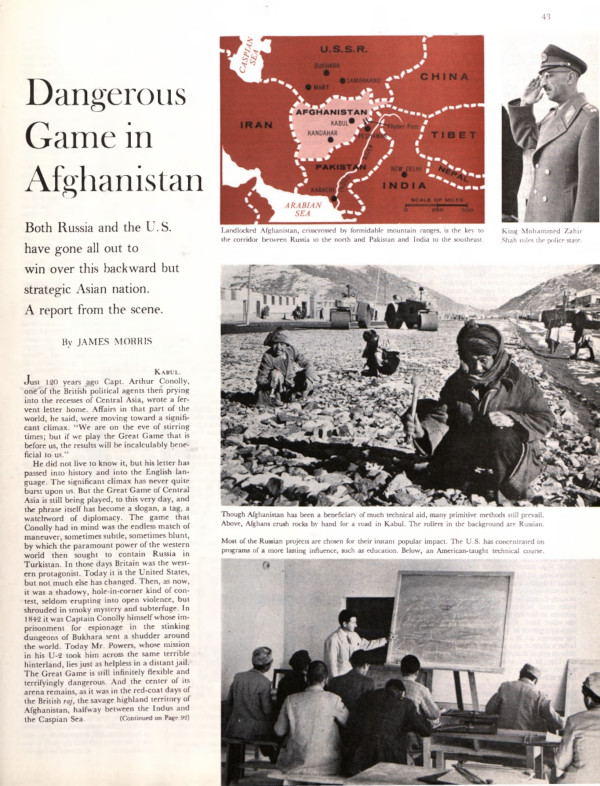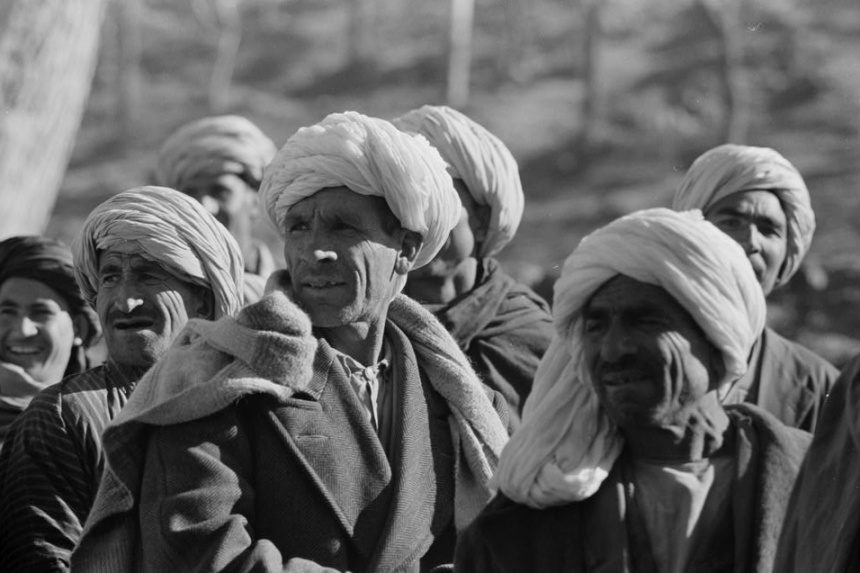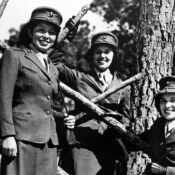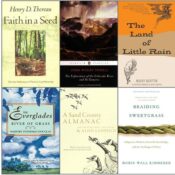When The Saturday Evening Post reported on Afghanistan in 1960, the country had managed to remain neutral during both world wars. The longstanding monarchy still reigned, although that would soon change. Because of its strategic location during the Cold War, it found itself on the receiving end of infrastructure and development aid from both the U.S. and the Soviet Union. The power struggles and proxy wars that would plague the country for decades were just off stage, waiting in the wings.
The article foreshadows the strife to come, as journalist James Morris reported on how the U.S. and Soviet Union used Afghanistan as a pawn to achieve their own ends. This attitude was evident in Morris’s description of the country as “a staging post and crossroads on the way to somewhere else.”
But it was an important post, and the Cold War rivals poured money into the nation, despite much uncertainty as to where Afghanistan’s loyalties lay: “This is big money, and Afghanistan is a museum, or laboratory, of economic aid, where you may compare the various techniques of altruism, study the methods of the rival Croesuses and estimate what—if anything—the Russians and the Americans are getting out of it all.”
The author spends much of the article parsing which of the superpowers was more likely to dominate the country, either by carrot (airports and education) or stick (invasion or political coup). While he recognized that the Afghans were a culturally fragmented country that was good at playing one side against the other, Morris didn’t seem to doubt that either America or Russia would ultimately win the day.
Sixty years later, one observation from Morris still holds true: “The Great Game is still infinitely flexible and terrifyingly dangerous. And the center of its arena remains…Afghanistan.”

Featured image: Men in Kabul during President Eisenhower’s visit in 1959 (Photo by Thomas J. O’Halloran, Library of Congress)
Become a Saturday Evening Post member and enjoy unlimited access. Subscribe now



